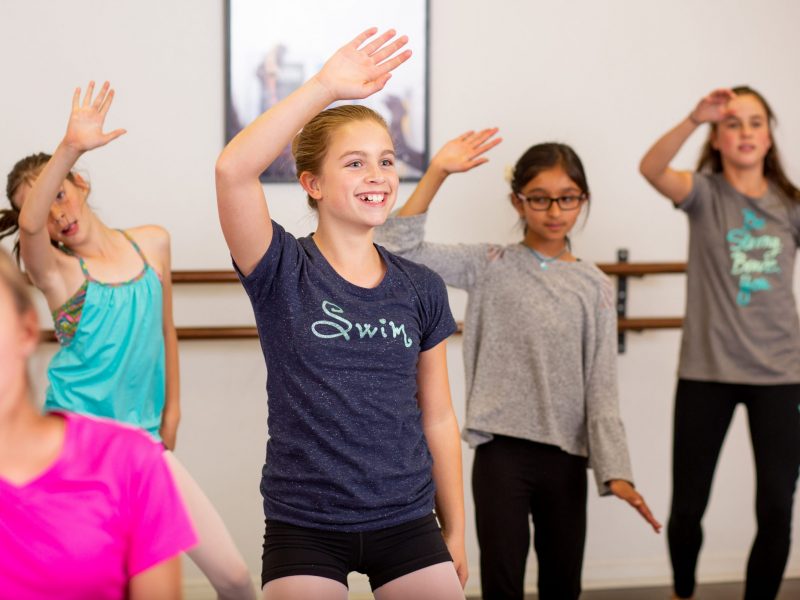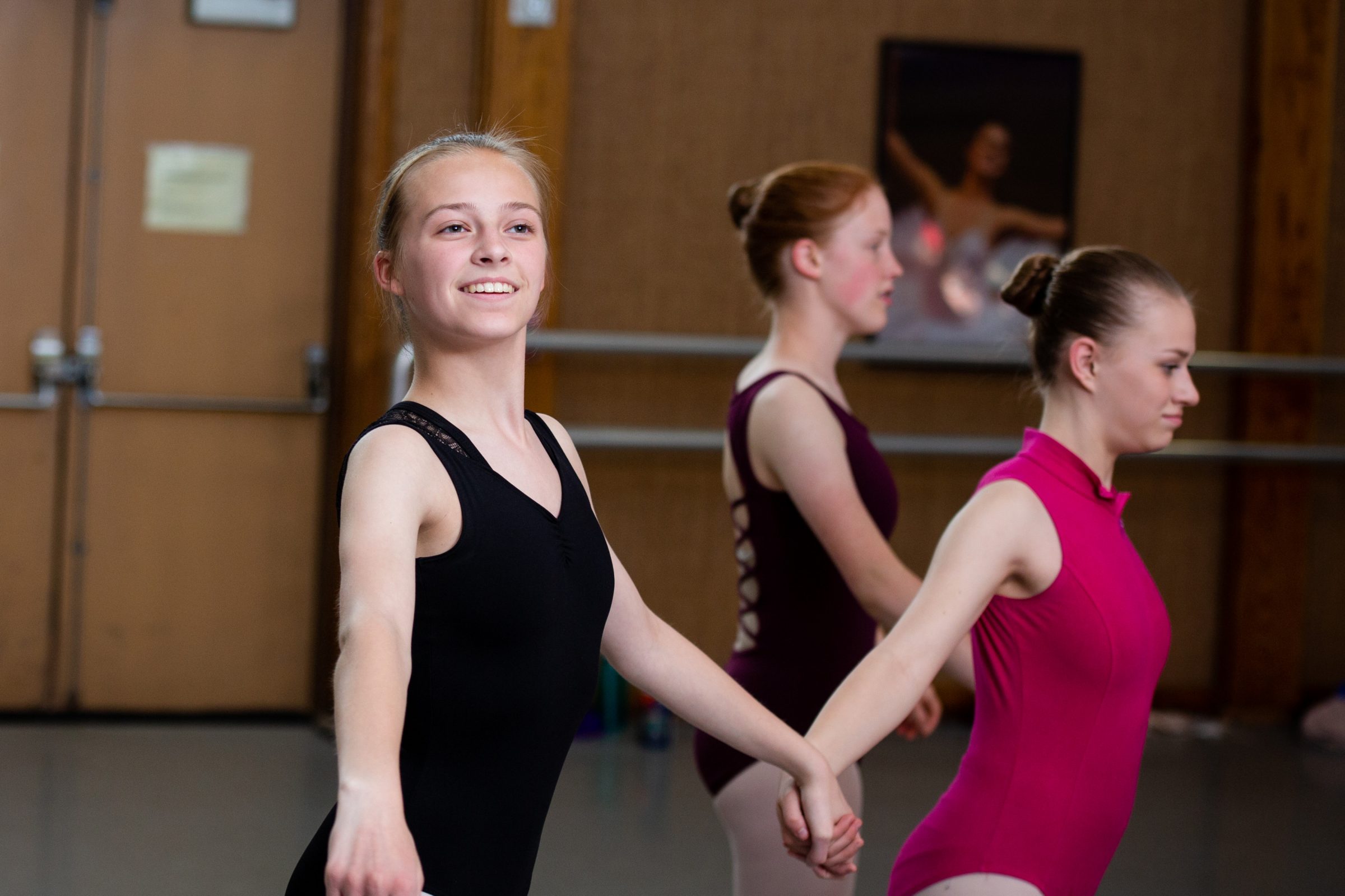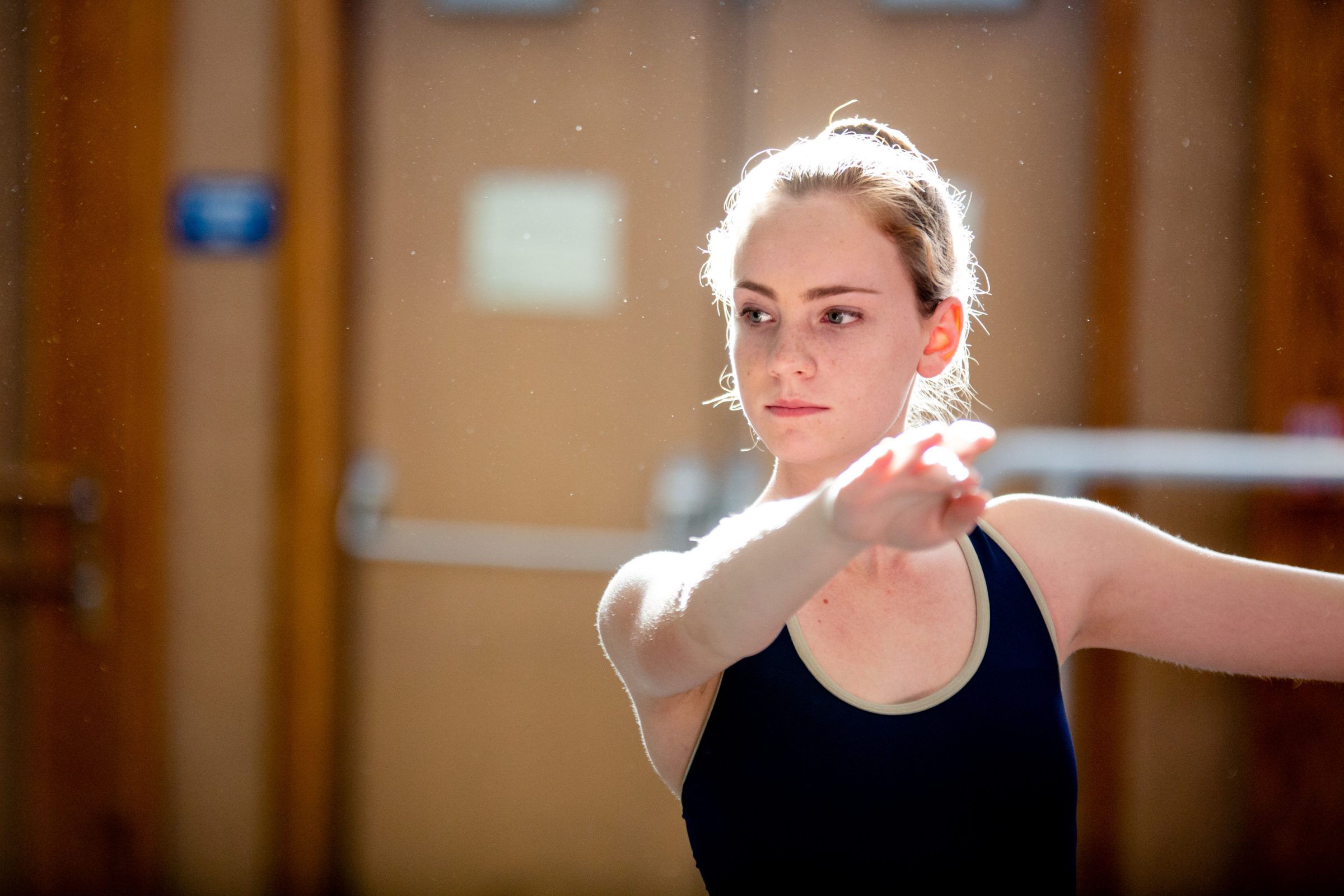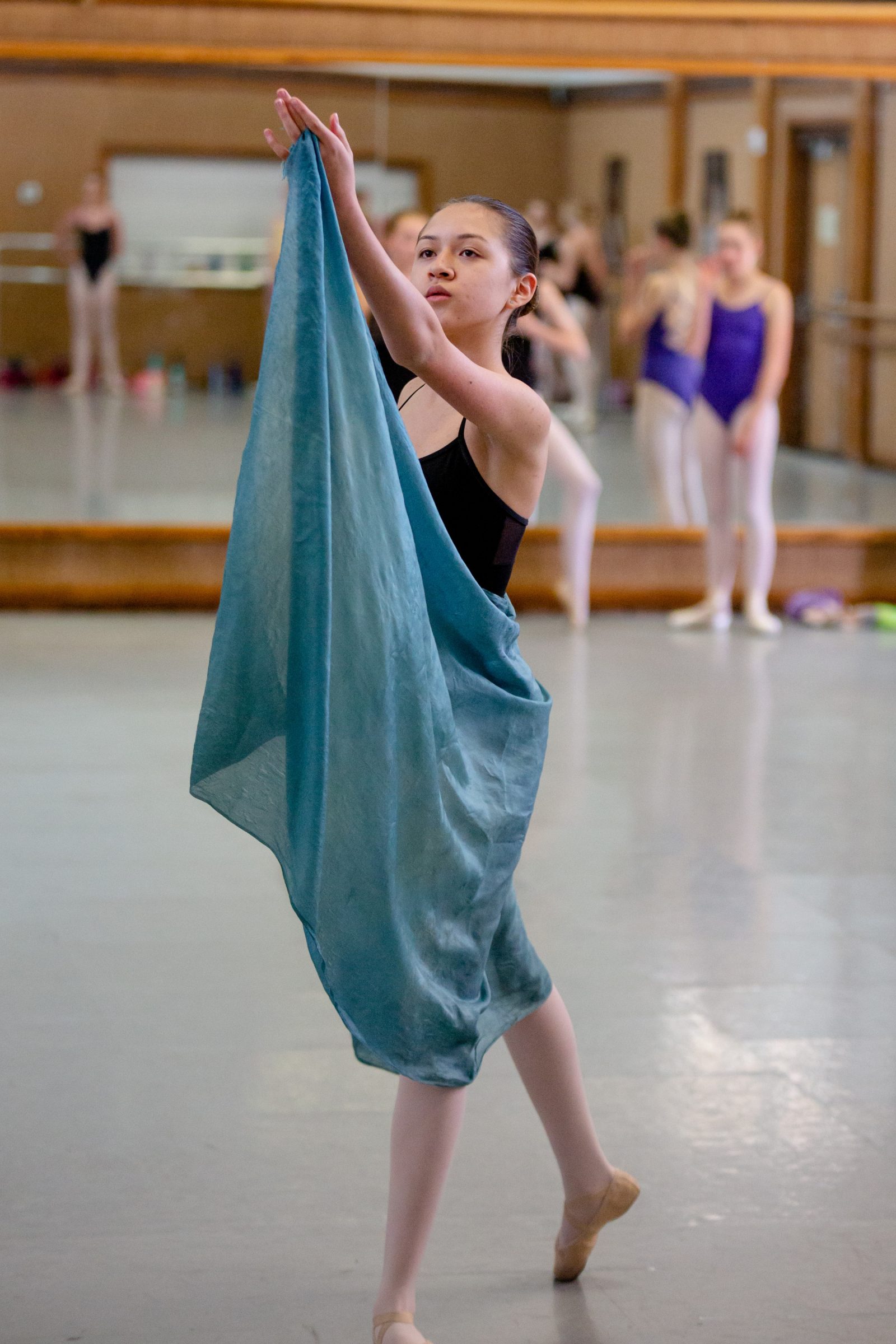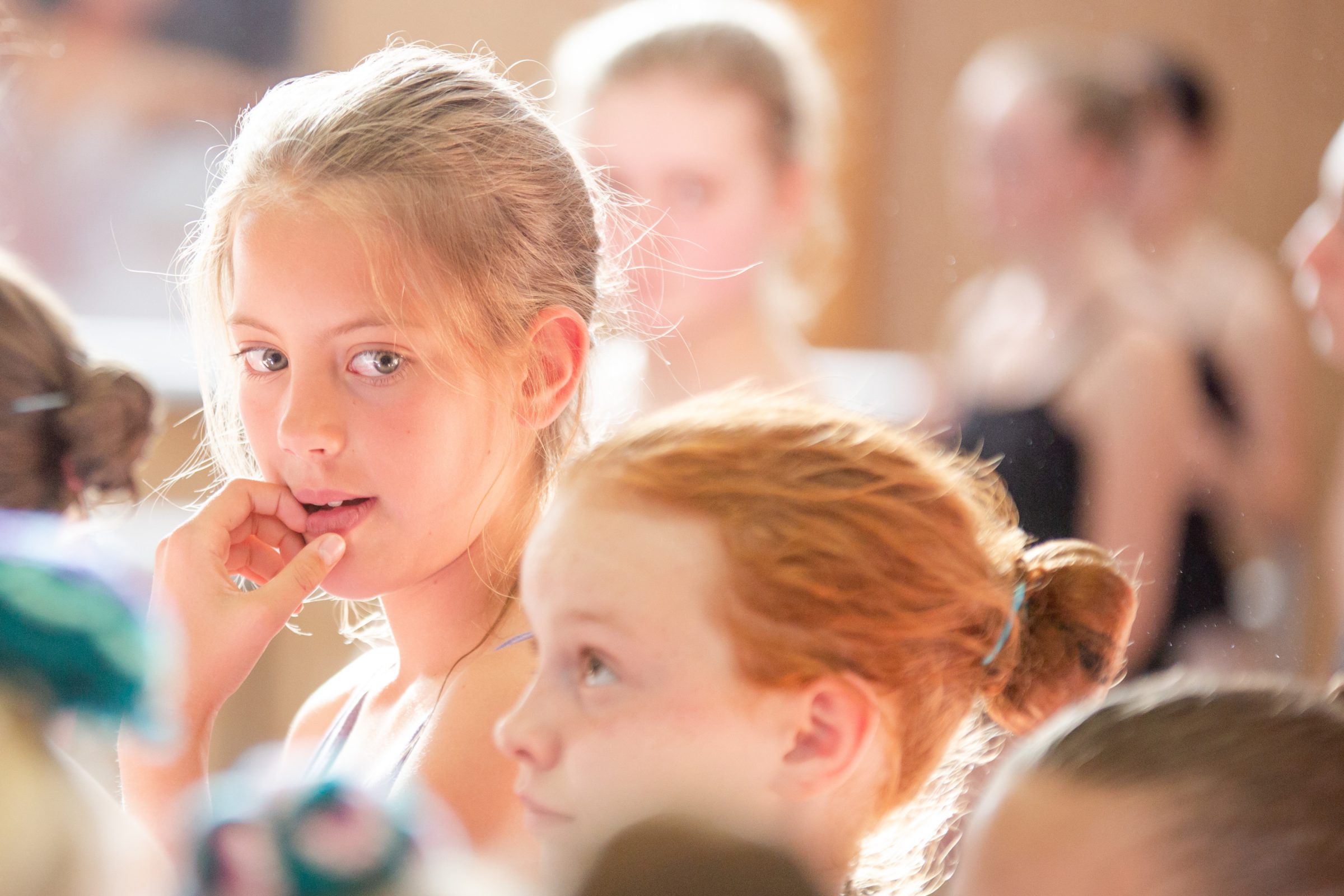The NAU Community Music and Dance Academy proudly offers group classes and private dance classes for students ages three and up in the Flagstaff and larger Arizona community. We have several introductory dance classes for our youngest tiny tots and our adult beginners, while also offering a structured ballet program based on schooling taught by the Royal Academy of Dance (RAD) for elementary to high school students.
For adults who are interested in training in ballet and becoming certified, please check out our RAD CDT Teach-Prep Course and Mentoring programs. Our youth ballet programs run after school from August until December, and then again from January until May, with additional summer programs. For more information on our different classes or on our RAD program, please check out the information below.
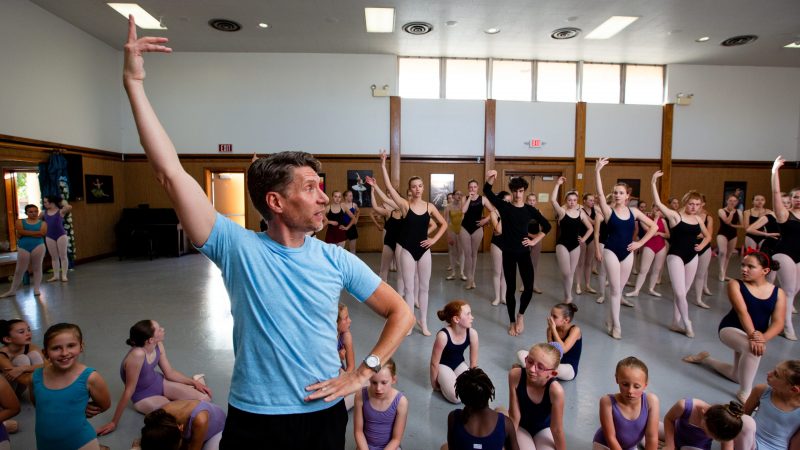
Our dance program
The Royal Academy of Dance (RAD) is one of the world’s most influential dance education and training organizations. Founded in 1920 as the Association of Teachers of Operatic Dancing in Great Britain, the program was led by Adeline Genée and held its first exams in 1921. After receiving a Royal Charter in 1936 from King George V, they changed their name to the Royal Academy of Dance.
Our teachers
Our academy is able to teach the RAD program thanks to our RAD-Registered teacher, Mr. Needhammer. RAD-Registered teachers have undergone stringent dance education training to give them the necessary skills and knowledge to teach dance. They are part of an organization that has the protection of the public at the core of its values and strives to empower people through dance. For more information on RAD’s history and impact on the world of dance and ballet, please visit the RAD USA website.
Mr. Needhammer
Dance Program Coordinator – ARAD, RAD RTS
Mr. Needhammer trained at the New York School of Ballet before joining American Ballet Theatre II, then danced with the National Ballet of Canada. He was also a principal dancer with Ballet Arizona. Mr. Needhammer has been with our academy since 2004.
Ms. Heather
Assistant Dance Program Coordinator – RAD member
Ms. Heather is a Flagstaff native, born and raised. She graduated from the NAU Community Dance Academy RAD program before attending NAU. She has taught with our academy since 1997 and is our primary Early Ballet instructor.
Ms. Whitehurst
Modern Dance and Choreography/Jazz
Ms. Whitehurst is a current faculty teacher with NAU’s Theatre Department. She has an MFA in Choreography (CalArts) and an MFA in Acting (Institute for Advanced Theater Training MXAT/A.R.T. at Harvard). Ms. Whitehurst has worked with the academy since 2020, teaching Modern Dance and Jazz. Please see our “Additional Youth Classes” section below for more information on our Modern Dance classes. Jazz is offered during our Summer Dance Camp.
Mrs. Terriquez
PBT Ballet Conditioning
Mrs. Terriquez is the Academy’s certified Progressive Ballet Technique (PBT) Conditioning teacher, in addition to other stretching and exercise classes. She also teaches at the Flagstaff Athletic Club. Mrs. Terriquez has taught at our academy since 2021. Please see our “Additional Youth Classes” section below for more information on our PBT classes.
